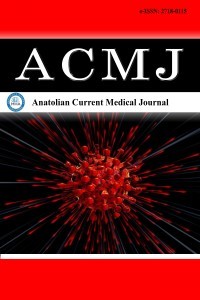Anatolian Current Medical Journal
Anatolian Current Medical Journal (ACMJ) is an unbiased, peer-reviewed, and open access international medical journal. The Journal publishes interesting clinical and experimental research conducted in all fields of medicine, interesting case reports, and clinical images, invited reviews, editorials, letters, comments, and related knowledge.

